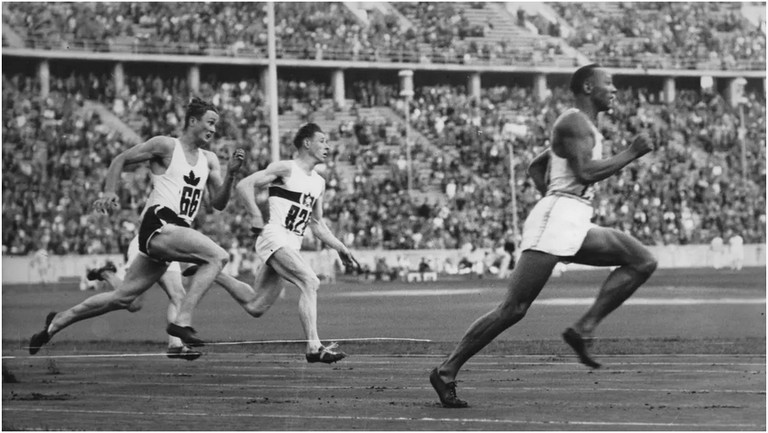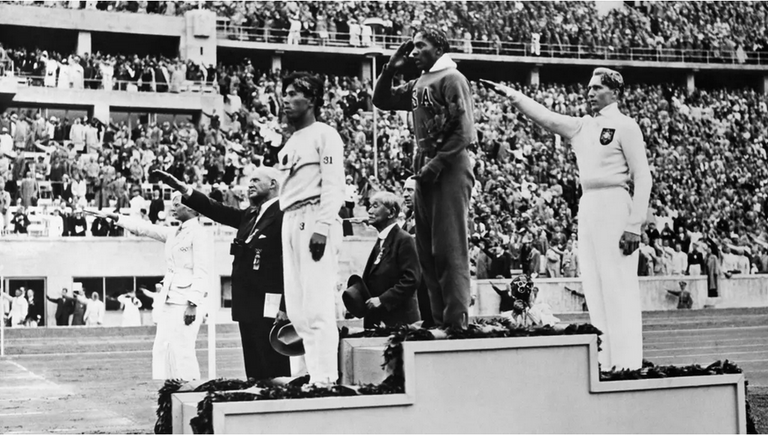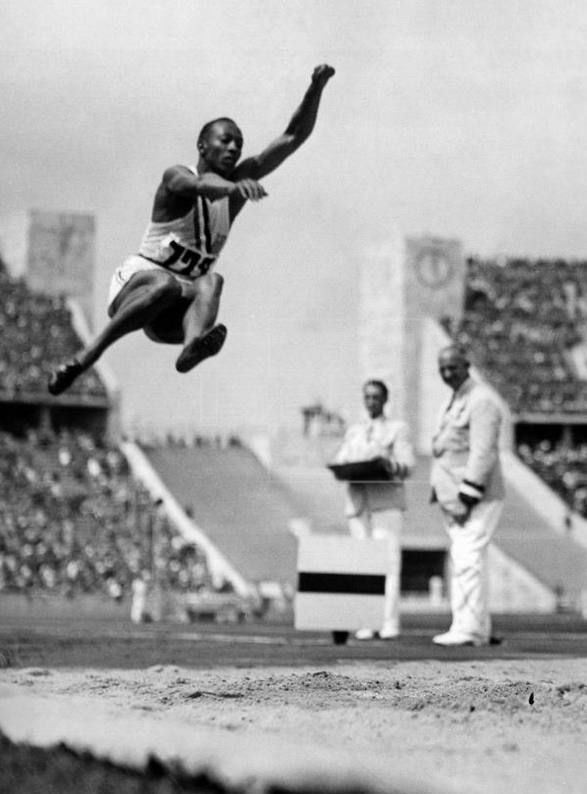
Nuestra memoria es corta. Vivimos en una era moderna donde lo efímero es lo principal. Y nuestra memoria se acorta cada vez más. Al punto de ya estar olvidándonos de los Juegos Olímpicos de Tokio 2020. Ya pertenecen al pasado. Y, sin embargo, la ceremonia de cierre fue el domingo pasado, hace apenas cuarenta y ocho horas.
Dentro de algunos días los récords olímpicos y medallas de oro van a pasar a ocupar un lugar muy pequeño en lo más recóndito de nuestra memoria. Y sin embargo no siempre fue asi.
En una época en que los medios de comunicación se limitaban a la radio, a la televisión en blanco y negro, en que internet y las redes sociales eran una utopía, argumentos de ciencia ficción más dignos de Ray Bradbury o de Isaac Asimov que posibilidades concretas de comunicar en el futuro, los grandes atletas y los deportistas en general -máxime si eran olímpicos- quedaban por más tiempo en la mente de las personas, en el imaginario popular de los deportes.
Hoy me quiero referir a un atleta emblema de los Juegos Olímpicos: Jesse Owens. Por si alguien no lo recuerda afroamericano, nacido en Alabama (EE. UU.)
Ganó sus cuatro medallas de oro en las pruebas de 100 m, 200 m, salto de longitud y la posta de 4 × 100 m. en las olimpiadas de Berlín en el año 1936, poco antes de la declaración de la Segunda Guerra Mundial.
Cuando toda Alemania y una gran parte de Europa estaba inundada por la xenofobia y por el predominio de la raza ariana. Y Adolf Hitler era su principal referente y líder político. En ese contexto de odio racial se celebraron los Juegos Olimpicos en Berlín con la arrogancia y el desdén que servirían, no solo para afianzar la supremacía de una teoría tan insensata como criminal, sino que significarían una victoria aplastante de la raza blanca contra el resto de la humanidad.
Las medallas de oro que nadie esperaba.

Jesse Owens ganaría la carrera de los 100 mts con un tiempo extraordinario para la época: 10,3 segundos. Es su primera medalla de oro y los jerarcas del partido nacional socialista alemán comienzan a mirarlo de reojo. Comienzan a ver vacilar el castillo de papel que habían construído. Su principal enemigo deportivo pasa a tener un nombre: Jesse Owens.
Adi Dassler fabricante alemán de calzado deportivo (que años más tarde inmortalizaría la marca Adidas como sinónimo de deportes) ve encarnado el él la justa reivindicación que hasta ese momento el mundo le negaba a negros y judíos, por ejemplo. Y le ofrece la esponsorización de su fábrica. Owens se transforma así en el primer atleta afroamericano esponsorizado en la historia del deporte.
Un dia más tarde el 4 de agosto de 1936 obtiene su segunda medalla dorada en salto en largo con una marca de 8,06 mts.
Como si eso no bastara un día después gana los 200 m con un tiempo de 20,7 segundos y obtiene su tercera medalla de oro olímpica.
Tres medallas de oro en tres dias consecutivos. Un verdadero fenómeno.
Después de un breve intervalo cuatro días más tarde, el 9 de agosto de 1936, cierra su espectacular presentación olímpica con un nuevo oro. Esta vez es el turno de la posta 4x100 que con Jesse Owens, Ralph Metcalfe, Frank Wykoff y Foy Draper gana estableciendo un nuevo récord mundial de 39,8 segundos.
Una hazaña olímpica que duraría (casi) medio siglo.
Van a pasar muchos años para que esta hazaña pueda ser igualda, casi medio siglo para ser exactos.
Ironía de la suerte, en los Juegos Olímpicos de Los Angeles en 1984, otro atelta de color Carl Lewis gana la misma cantidad de medallas en las mismas disciplicas deportivas.
La imagen emblemática de Jesse Owens después de ganar la medalla de oro en el salto en largo recorrió el mundo: al centro Owens haciendo el saludo militar con la venia a la bandera al escuchar las estrofas de su himno. A su derecha un apático japonés insensible a los discursos políticos (Naoto Tajima) y a su izquierda el alemán el atleta alemán Luz Long en el último escalón del podio haciendo el clásico saludo nazista al Führer.

Our memory is short. We live in a modern era where the ephemeral is the main thing. And our memory is getting shorter and shorter. To the point that we are already forgetting about the Tokyo 2020 Olympic Games. They already belong to the past. And yet, the closing ceremony was last Sunday, just forty-eight hours ago.
In a few days the Olympic records and gold medals will occupy a very small place in the recesses of our memory. And yet it was not always so.
At a time when the media were limited to radio and black and white television, when the Internet and social networks were a utopia, science fiction plots more worthy of Ray Bradbury or Isaac Asimov than concrete possibilities of communicating in the future, the great athletes and sportsmen in general - especially if they were Olympians - remained longer in people's minds, in the popular imagination of sports.
Today I would like to refer to an emblematic athlete of the Olympic Games: Jesse Owens. In case anyone does not remember him, he was an African-American, born in Alabama (USA).
He won his four gold medals in the 100 m, 200 m, long jump and the 4 × 100 m relay at the Berlin Olympics in 1936, shortly before the declaration of World War II.
When all of Germany and a large part of Europe was flooded by xenophobia and the dominance of the Aryan race. And Adolf Hitler was its main reference and political leader. In this context of racial hatred, the Olympic Games were held in Berlin with the arrogance and disdain that would serve not only to strengthen the supremacy of a theory as senseless as it was criminal, but would also mean a crushing victory of the white race against the rest of humanity.
The gold medals that no one expected.

Jesse Owens would win the 100m race with an extraordinary time for the time: 10.3 seconds. It was his first gold medal and the hierarchs of the German National Socialist Party began to look at him sideways. They began to see the paper castle they had built wavering. Their main sporting enemy now has a name: Jesse Owens.
Adi Dassler, a German sports shoe manufacturer (who years later would immortalize the Adidas brand as a synonym for sports) saw in him the just vindication that until then the world had denied to blacks and Jews, for example. And he offered him the sponsorship of his factory. Owens thus became the first African-> American sponsored athlete in the history of sport.
One day later, on August 4, 1936, he won his second gold medal in the long jump with a mark of 8.06 meters.
As if that were not enough, one day later he wins the 200 m with a time of 20.7 seconds and obtains his third Olympic gold medal.
Three gold medals in three consecutive days. A true phenomenon.
After a brief interval four days later, on August 9, 1936, he closes his spectacular Olympic performance with another gold. This time it is the turn of the 4x100 relay with Jesse Owens, Ralph Metcalfe, Frank Wykoff and Foy Draper win setting a new world record of 39.8 seconds.
An Olympic feat that would last (almost) half a century.
It will be many years before this feat can be matched, almost half a century to be exact.
Ironically, at the 1984 Olympic Games in Los Angeles, another athlete of color, Carl Lewis, won the same number of medals in the same sporting disciplines.
The emblematic image of Jesse Owens after winning the gold medal in the long jump traveled the world: in the center Owens making the military salute with the salute to the flag when listening to the stanzas of his anthem. To his right an apathetic Japanese athlete insensitive to political speeches (Naoto Tajima) and to his left the German athlete Luz Long on the last step of the podium making the classic Nazi salute to the Führer

| Blogs, Sitios Web y Redes Sociales / Blogs, Webs & Social Networks | Plataformas de Contenidos/ Contents Platforms |
|---|---|
| Mi Blog / My Blog | Los Apuntes de Tux |
| Mi Blog / My Blog | El Mundo de Ubuntu |
| Mi Blog / My Blog | Nel Regno di Linux |
| Mi Blog / My Blog | Linuxlandit & The Conqueror Worm |
| Mi Blog / My Blog | Pianeta Ubuntu |
| Mi Blog / My Blog | Re Ubuntu |
| Mi Blog / My Blog | Nel Regno di Ubuntu |
| Red Social Twitter / Twitter Social Network | @hugorep |

| Blurt Official | Blurt.one | BeBlurt | Blurt Buzz |
|---|---|---|---|
 |  |  |  |
 |  |  |  |
|---|


Upvoted. Thank You for sending some of your rewards to @null. Read my last posts to make sure that BLURT burning is profitable for you. Before using this bot please make sure your account has at least 100 BP. Get more BLURT:
@ mariuszkarowski/how-to-get-automatic-upvote-from-my-accounts@ blurtbooster/blurt-booster-introduction-rules-and-guidelines-1699999662965@ nalexadre/blurt-nexus-creating-an-affiliate-account-1700008765859@ kryptodenno - win BLURT POWER delegationThanks @ctime & curators.